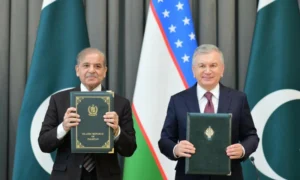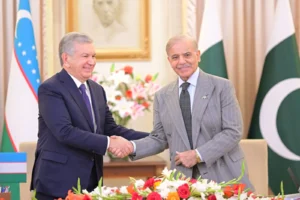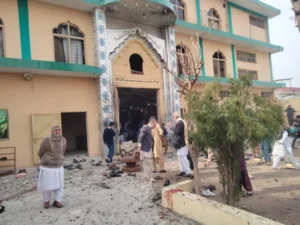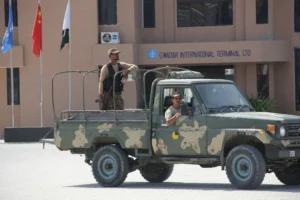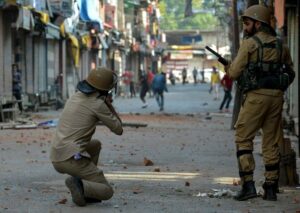DSP Iqbal Mohmand’s martyrdom in Lakki Marwat stands as a powerful symbol of Pakistan’s enduring fight against terrorism. Serving in one of Khyber Pakhtunkhwa’s most volatile districts, he led critical operations against militant networks and upheld the state’s authority in a region fraught with danger. His death during a targeted ambush in March 2023, alongside fellow officers, reflects the daily risks faced by law enforcement. More than a statistic, Mohmand represents the human cost of national security, a face of sacrifice whose courage and commitment must be remembered, honored, and embedded into Pakistan’s collective resolve against extremism.
The Human Cost of Security
In Pakistan’s long and arduous battle against terrorism, the sacrifices of frontline officers often go unnoticed beyond fleeting headlines. Yet their courage forms the backbone of national resilience. Among these unsung heroes stands Deputy Superintendent of Police (DSP) Iqbal Mohmand, whose martyrdom in Lakki Marwat in March 2023 is a stark reminder of the price paid daily to protect the country’s fragile peace. His story, marked by duty, defiance, and ultimate sacrifice, deserves to be etched into the national memory, not just as a statistic, but as a symbol of unwavering resolve.
The Final Mission: Lakki Marwat Ambush
On the night of March 30, 2023, DSP Iqbal Mohmand was leading a routine movement toward Saddar Police Station when his convoy was ambushed by militants. Armed with grenades and automatic weapons, the attackers launched a brutal assault aimed at destabilizing law enforcement presence in the region. Despite being outnumbered and outgunned, DSP Iqbal Mohmand and his team retaliated with remarkable bravery, forcing the assailants to retreat. In the exchange, four police officers, including DSP Mohmand, embraced martyrdom, while six others sustained injuries. This was not an isolated incident; it was part of a growing pattern of targeted violence against police in Khyber Pakhtunkhwa, particularly in districts like Lakki Marwat that straddle the fault lines of militancy.
A Career Built on Courage
DSP Iqbal Mohmand’s career was defined by his deep commitment to public service and his strategic understanding of the region’s security dynamics. He had served in Lakki Marwat for years, leading counterterrorism operations and community policing initiatives that helped stabilize one of the province’s most vulnerable districts. His leadership was not just tactical; it was symbolic. In a region where the state’s writ is often challenged, his presence represented the resilience of law enforcement and the promise of protection for ordinary citizens.
Aftermath and Accountability
Following the attack, the Counter Terrorism Department (CTD) launched a swift investigation, eventually apprehending the main accused linked to multiple assaults on police personnel. The busting of the militant cell responsible for DSP Iqbal Mohmand’s death was a small but significant victory in a war that often feels endless. Yet, even as justice was pursued, the emotional and operational void left by his martyrdom was deeply felt. His death galvanized renewed efforts to secure the region, but it also highlighted the persistent vulnerabilities faced by police forces operating in high-risk zones.
Beyond the Uniform
In the broader context of “faces of sacrifice,” DSP Iqbal Mohmand’s story is emblematic of the human cost of counterterrorism. These are not faceless operatives; they are fathers, sons, and community leaders who choose service over safety. His sacrifice challenges us to look beyond policy frameworks and recognize the emotional and societal toll borne by those who defend the nation. It also underscores the need for institutional support, mental health resources, family compensation, and public recognition for those who serve in harm’s way.
Strategic Lessons for Pakistan
DSP Mohmand’s martyrdom also offers critical lessons for Pakistan’s security architecture. The resurgence of militant activity in KP demands a recalibrated strategy that blends kinetic operations with intelligence reform and community engagement. Officers like Mohmand operated at the intersection of these domains, bridging the gap between policy and practice. His death should prompt a national conversation on strengthening police capacity, improving inter-agency coordination, and investing in surveillance technologies across vulnerable districts.
Honoring the Legacy
To truly honor DSP Iqbal Mohmand, Pakistan must institutionalize his legacy. This includes naming police training facilities after him, documenting his story in national archives, and integrating his example into leadership development programs. His life and sacrifice should be taught in police academies, not just as a tale of bravery, but as a blueprint for ethical and effective policing in conflict zones. Public tributes, memorials, and storytelling campaigns can also help preserve his memory and inspire future generations of law enforcement.
Conclusion: A Symbol of National Resolve
DSP Iqbal Mohmand is more than a fallen officer; he is a face of sacrifice in Pakistan’s ongoing struggle for peace. His story reminds us that security is not inherited; it is earned through the blood and bravery of those who serve without expectation of reward. As Pakistan continues to confront complex internal threats, its legacy must guide our collective resolve. In honoring him, we reaffirm our commitment to the values he stood for: courage, duty, and the unbreakable bond between the state and its protectors.
Also Read: The Silent Valor of AC Muhammad Afzal: A Face of Sacrifice in Balochistan



